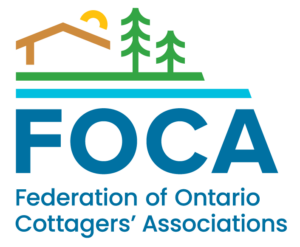
FOCA is very concerned about the potential impacts of introduced species and the effect they can have on our quality of life in Ontario
For many years, FOCA has been supporting our member associations by funding on-the-ground projects aimed at identification, education and outreach, eradication and preventing the spread of invasive species in Ontario.

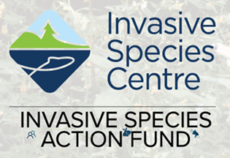
November 2025: FOCA’s partners at the Invasive Species Centre (ISCS) encourage you to apply to the Invasive Species Action Fund for grants to support on-the-ground invasive species monitoring, management and prevention projects across Ontario.
Eligible municipalities, lake and community associations, conservation authorities, organization, and Indigenous communities can apply to ISC by January 9, 2026 for funding of up to $50,000 to help protect local ecosystems and advance the goals of Ontario’s Invasive Species Strategic Plan.
EARLIER NEWS:
September 2025 – Sea lamprey trap in Thunder Bay, Ontario aims to protect Great Lakes from invasive species (CBC News) – New trap is the only indexing site for sea lamprey on the Canadian side of Lake Superior (image of sea lampreys in a tank: Sarah Law/CBC from the article above)
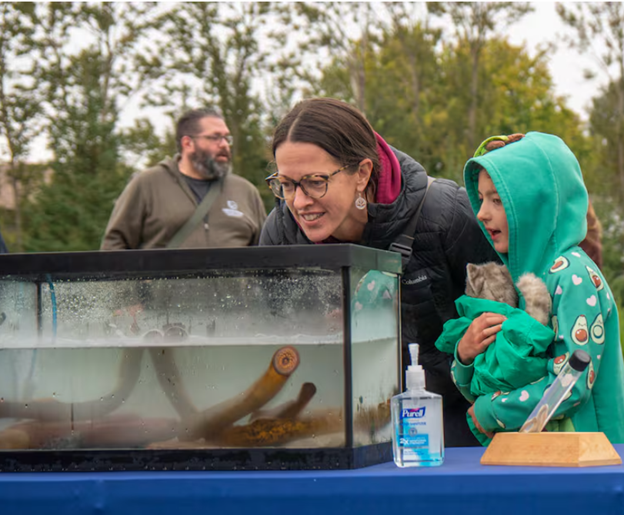
For our members in the Ottawa Valley, and the northeastern boundary of Ontario and Quebec, our colleagues at Ottawa Riverkeeper have created a set of invasive species quizzes to help you learn how to identify local invaders. Learn about Eurasian Milfoil, Spiny Waterflea, Water Chestnut, and others. Click to visit the Ottawa Riverkeeper online resources.
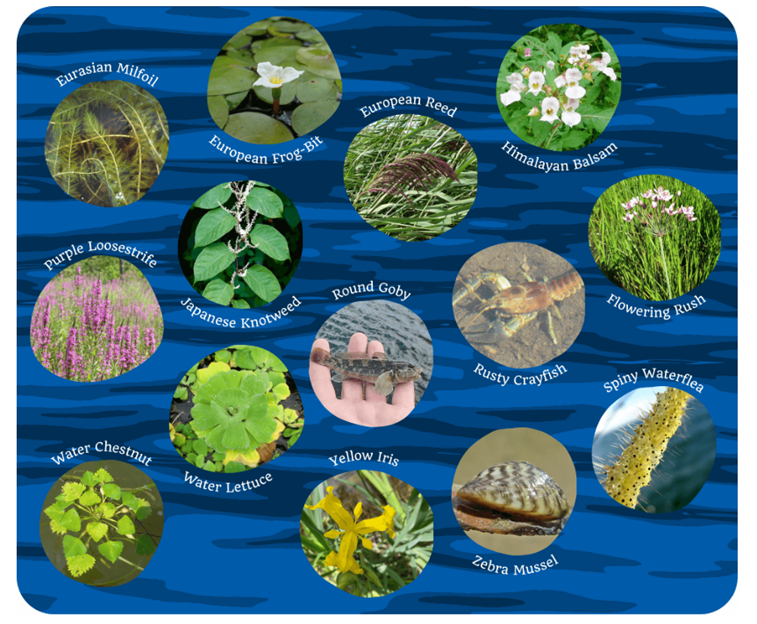
Our partners at the Ontario Invasive Plants Council have released a Best Management Practices Guide for Aquatic Invasive Plants. Access a digital copy of the 177-page guide, here.
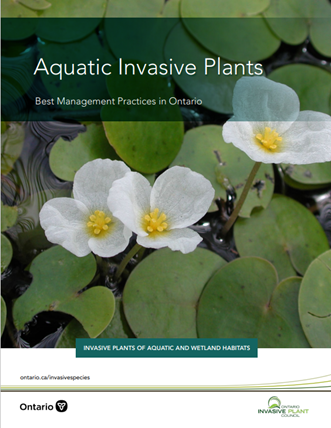
Love to garden?
Our partners at the Invasive Species Centre have a list of “Top 5 Ways” you can help reduce the spread of invasive species in your garden.
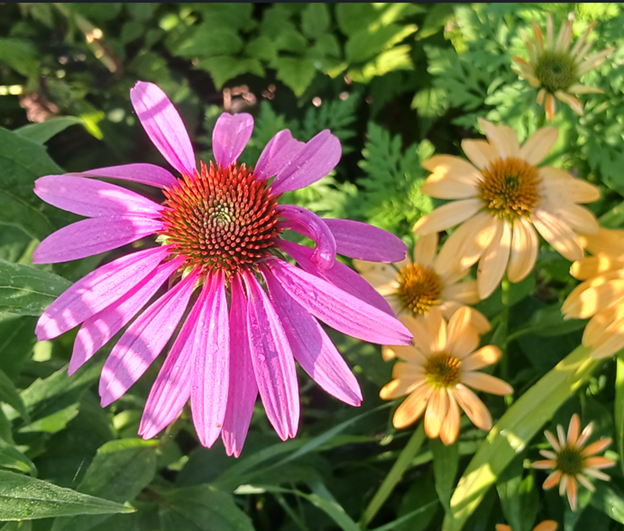

Find it. Report it. Monitor it. Prevent the Spread.
If you find an invasive species, call the Invading Species hotline at 1-800-563-7711 or visit Ontario’s Invading Species Awareness Program.
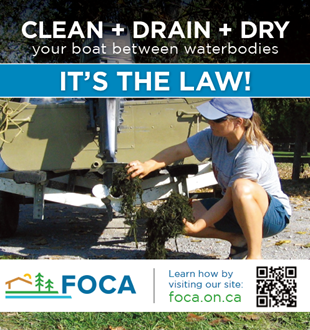
Clean + Drain + Dry
Be part of the solution for preventing the spread of invasive species by boat.
It’s now the law in Ontario to Clean+Drain your boat, trailer and gear before moving to a new waterbody.
Learn more here: https://www.ontario.ca/page/invasive-species-action-plans/#boaters and watch this useful video from our partners at the Invasive Species Centre: What you need to know about Clean, Drain, Dry in Ontario
Also, read FOCA’s Underwater Plants guide to learn how to ID non-native and native species!
Together, we can prevent the spread.
EARLIER NEWS:
Sept. 18, 2024 – Invasive species are reshaping aquatic ecosystems, one lake at a time (The Conversation)
June 19, 2024 – Non-native plants and animals expanding ranges 100-times faster than native species, finds new research (Phys.org) – an international team of scientists studied the movement of native and invasive plants under the impact of a changing climate, noting humans accelerate the spread of non-native species either accidentally or “intentionally” (such as purchasing invasive ornamental plants from a nursery and planting them in new regions). Learn more below about preventing the spread of invasive species.
July 31, 2024 – When fighting invasive aquatic plants, choose your battles (TheConversation.com) by Prof. Claude Lavoie, University of Laval – a discussion of the costs and long-term difficulties of controlling large areas of Eurasian watermilfoil in lakes
July 4, 2024 – our partners at the Invasive Species Centre have announced funding through the Invasive Species Action Fund for new collaborative action projects on critical invasive species issues by community groups, Indigenous organizations and municipalities, including several FOCA member groups:
- Picard Lake Cottage Association – Eurasian Watermilfoil (EWM) Mitigation and Control Trial phase 2
- Sharbot Lake Property Owners Association (SLPOA) – EWM Monitoring and tracking on Sharbot Lake
- Lake of the Woods District Stewardship Association – Education and outreach for sustainability
- Drag Lake Property Owners’ Association – Improving the Management of Large EWM Outbreaks and Enabling Control of Small Outbreaks by Owners
- Wollaston Lake Home and Cottage Association – EWM Remediation.
June 20, 2024 – FOCA was pleased to see the Province release news of $16 million in funding over the next 3 years to help protect the economy, environment and biodiversity from the threat of invasive species through research monitoring and management efforts. Read the provincial media release.
March 2024 – CD3 Systems, one of FOCA’s valued Corporate Sponsors, has launched a new “Check-In, Check-Out” boat cleaning instructions APP to help prevent the spread of invasive species. Download a 3-page information package about the free CICO Program (PDF) and how you could use it at your local boat launch.
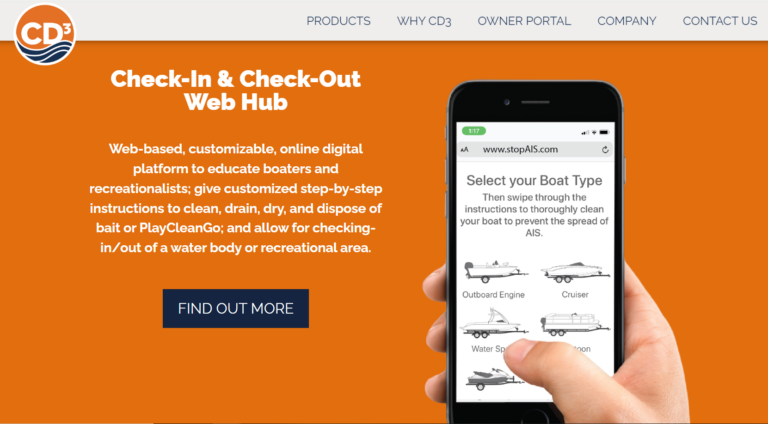
April 2024 – Invasive ‘zombie plant’ species is wreaking havoc across Ontario lakes (BlogTO) – Eurasian watermilfoil: “…aquatic experts say its complete eradication is unlikely”
Feb 2024 – Balancing act: A policy success story in the Great Lakes (Michigan State University) Implementing the ‘swish and spit’ method successfully reduced the risk of aquatic invasive species (AIS) introductions from transoceanic ballast water. “Ballast water from cargo ships crossing the ocean inadvertently brought in many AIS, accounting for the introduction of 40% of all nonindigenous aquatic species in the Great Lakes. However, collaborative efforts have led to pioneering research and policy changes that have reduced this threat.”
December 19, 2023 – Ontario adds 10 new species to invasive species registry (CBC News) including Eurasian Water-milfoil
Earlier News:
As of January 2022, Ontario has regulated watercraft (boats, canoes, kayaks) as a carrier of invasive species under the Invasive Species Act. These new regulations allow us to better prevent and slow the spread.
The rules are based on the Clean, Drain, Dry practices which have been promoted through education and outreach efforts across North America, by FOCA, and others.
- Boaters are now required to remove drain plugs, drain all on board water and remove any aquatic plants upon removing the watercraft from a waterbody.
- Prior to reaching a launch site for a body of water, the watercraft, watercraft equipment and any vehicle or trailer used to transport the watercraft or watercraft equipment must not have an aquatic plant, animal or algae attached to it
FOCA supported this regulatory change, and led an email campaign to encourage members to submit letters of support during the public consultation phase. Review FOCA’s 2021 letter to the Ministry (PDF, 100kB)
Read more about the new regulations, from the Province, here: Managing invasive species in Ontario
How can you help prevent the spread of invasive species in cottage country?
Some general best practices are:
- garden using only non-invasive plants
- dispose of bait properly
- buy firewood locally
- inspect and clean your boat & motor when changing water bodies (it’s the law)
Members: contact the office for copies of signs you can post at public boat launches.
For more on this subject, download FOCA’s Shoreline Owner’s Guide to Invasive Species. Members: contact the office for print copies of the Guide, while supplies last.
You can also download and share FOCA’s Invasive Species info sheet (pdf; 2 pages).
There is new guidance (April 2022) for watercraft users from the Ministry of Northern Development, Mines, Natural Resources and Forestry: Best Management Practices for Preventing the Spread of Aquatic Invasive Species
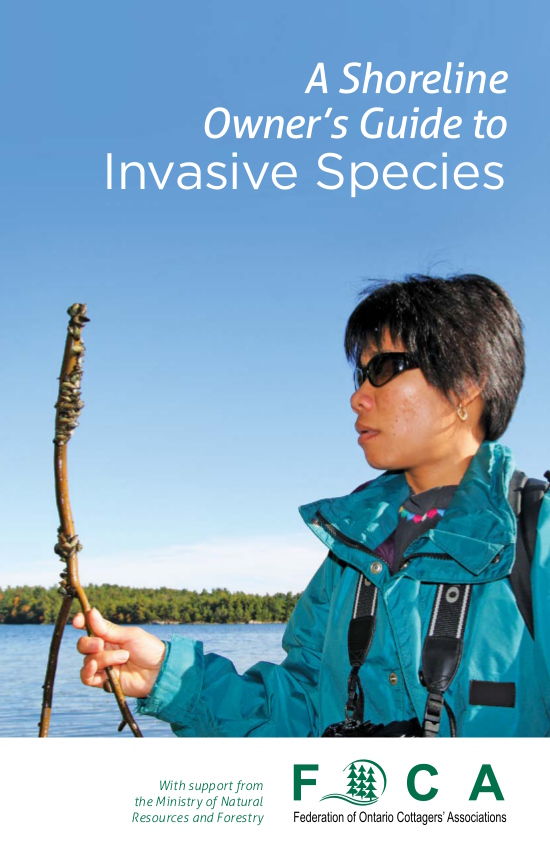
March 2023 – FOCA’s member group, the Drag and Spruce Lake Property Owners Association, has undertaken a longer-term study on the impacts and potential controls of Eurasian watermilfoil, an aquatic invasive plant. They hope others will be able to benefit from their experience. Review their work in a short video (also the source of the image at the side), which is posted here: https://vimeo.com/810673970
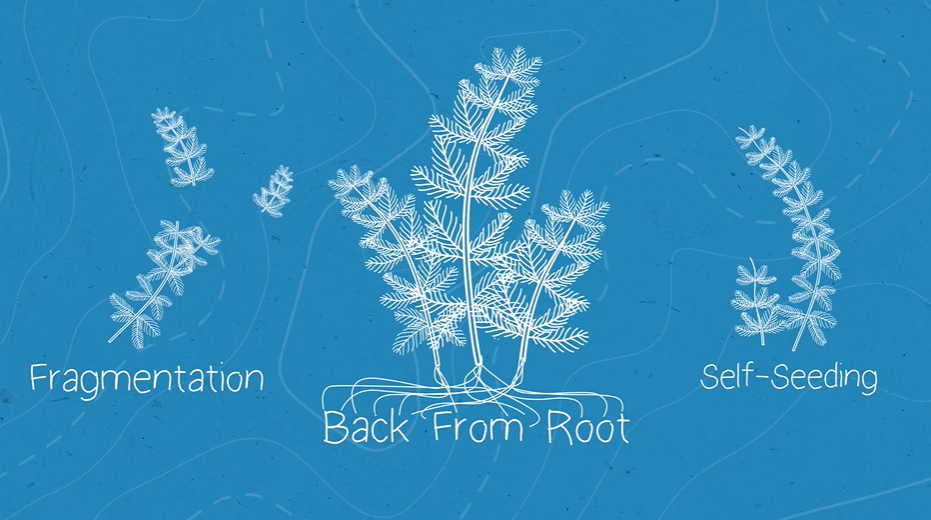
June 22, 2022 – FOCA’s partners at the Invasive Species Centre held a webinar about the invasive algae called Starry Stonewort which is now threatening southern Ontario waterways and spreads much like an invasive species. Watch the webinar recording, posted to YouTube.
Additionally, consult the Starry Stonewort Identification Guide (PDF, 2 pages) created by scientists at the Ontario Tech University.
FOCA Webinar: Zebra Mussels in Ontario (held June 15th, 2022). Join FOCA and Renata Claudi, M.Sc. from RNT Consulting Inc. for a webinar about the history of Zebra Mussels in Ontario, where and how they are spreading, and how they are impacting our waterways. Click here to watch the online posting (video; 1 hour). Please share this information with others at your waterbody.
FOCA Webinar:
Invasive Species & New Boat Regulations in Ontario (held March 9, 2022), with our guest speaker from the Ontario Ministry of Northern Development, Mines, Natural Resources & Forestry.
Watch this webinar about changes to the Invasive Species Act effective January 1, 2022 that prohibit and restrict certain new species, and regulate the movement of any watercraft from one waterbody to another by requiring specific draining and cleaning protocols to prevent the spread of invasive species.

Share the link to the webinar recording with everyone in your waterfront community (online posting; 45 minutes) or, download the slides (PDF, 4 MB)
Additional Resources:
Visit FOCA’s webpages on a number of particular invasive species:
- Phragmites
- spongy (LDD) moth (formerly known as gypsy moth)
- Asian carps
- IsampleON program of water sampling and eDNA monitoring for invasive species
Citizen scientists are volunteers who monitor our lakes, lands and rivers. They are often the first line of defence when it comes to finding and identifying invasive species! Learn more about citizen science in FOCA’s video at the side:
Also consult these partner resources:
- EDDMapS: online reporting, images and mapping
- Invasive Species “Best Management Practices” guides from the Ontario Invasive Plant Council’s website
- Invasive Species fact sheets from the Ontario Ministry of Natural Resources and Forestry
- Eurasian Water Milfoil (EWM)
- Giant Hogweed
- Round Goby
- Water Soldier
- Grow Me Instead Guides – Choose non-invasive plants for your property with the help of these guides:
- Southern Ontario version of Grow Me Instead
- Northern Ontario version of Grow Me Instead
- invasive.org – Center for Invasive Species and Ecosystem Health
- Ontario’s Invading Species Awareness Program
- Ontario Invasive Plants Council
- Invasive Species Centre
- click here for a link to the province’s resources, including a Cottagers Action Plan.

Please note: the following is archival material, and some links to third-party resources may no longer be active.
May 2022 – the Invasive Species Centre and partners have released the 2021 National Invasive Species Municipal Expenditures Survey (PDF, 35 pages) with estimates on municipal spending across Canada on invasive species management.
April 2022 – Download the new guidance for watercraft users from the Ministry of Northern Development, Mines, Natural Resources and Forestry: Best Management Practices for Preventing the Spread of Aquatic Invasive Species
March 2022 – the Township of North Kawartha has launched a municipal one-time grant program to support local lake associations in the pursuit of boat cleaning station solutions for their lakes. This falls under the Township’s strategic direction for “Environment – Protect and Enhance”. The Township will reimburse qualified regional associations for 50% of the costs to a maximum of $10,000 upon approval. Download details in this digital document (PDF, 6 pages), and consider how your municipality might bring a similar idea to Council for consideration.
February 2022 – FOCA was honoured to be part of the 2022 Invasive Species Forum. The 3rd annual Forum shared information and advances in prevention from over 50 experts from across the globe.
January 2022 – The Ontario Ministry of Northern Development, Mines, Natural Resources and Forestry (MNDMNRF) announced that Ontario has established four Bait Management Zones (BMZs) to protect our lakes and rivers from invasive species and fish diseases. Effective January 1, 2022, baitfish or leeches (whether live or dead) must not be transported into or out of a BMZ. For the map and more info, visit: www.ontario.ca/bait
July 8, 2021 – Michigan Researchers find relationship between invasive zebra mussels, toxic algae (Great Lakes Echo)
August 2021 – “Mussel Loss, Mussel Gain” – Zebra Mussels are being displaced by Quagga Mussels in Lake Simcoe (Lake Simcoe Region Conservation Authority)
July 11, 2021 – Massive snail die-off is unheard of and could affect ecosystem, expert says (CBC)
July 2021 – Picture captures die-off of Banded Mystery Snails on Lake Kashawakamak (CBC News)
July 2020 – read about Starry Stonewort in Kawarthas waterbodies (Drew Monkman)
December 14, 2016 – Great Lakes Invasive Species Documentary (Great Lakes Echo)
November 2016 – Ontario’s Invasive Species Act came into force. FOCA is encouraged by this enabling legislation and the opportunity it affords the Province to more effectively prevent the spread of harmful invasive species, and to (hopefully) eliciting real action from MNRF on rapid response including control and eradication activities.
October 3, 2016 – Lake Huron whitefish feeling effects of invasive mussels (greatlakesecho.org)
You asked, FOCA found the answer:
Question: July 2019 – a FOCA partner recently asked us what Hydro One’s operational standards were, with regard to preventing the spread of invasive species in their field operations. FOCA wrote to ask for an update. Here’s what we heard back from Hydro One:
I’ve spoken to our Environmental Services people. We have extensive polices on this issue as seen here: Hydro One Invasive Species response for FOCA 2019 (PDF, 7 pages) – in particular SP 1823 Invasive Species section 3.5 specific to Water / Board Access.
In fact, we reference FOCA’s tips for boaters in Appendix D.
We do train our team members on these protocols; however, if your members see a violation of these policies it would be helpful to let us know. If your members could give us any details such as time/place/boat number etc., that would be great. We’d track down the team member and go over the policies with him or her.
Thanks!
Hydro One Networks

If you see anything out of the ordinary with a Hydro One crew, let FOCA know and we’ll pass the details along to our contacts. Or, email CustomerCommunications@HydroOne.com.
